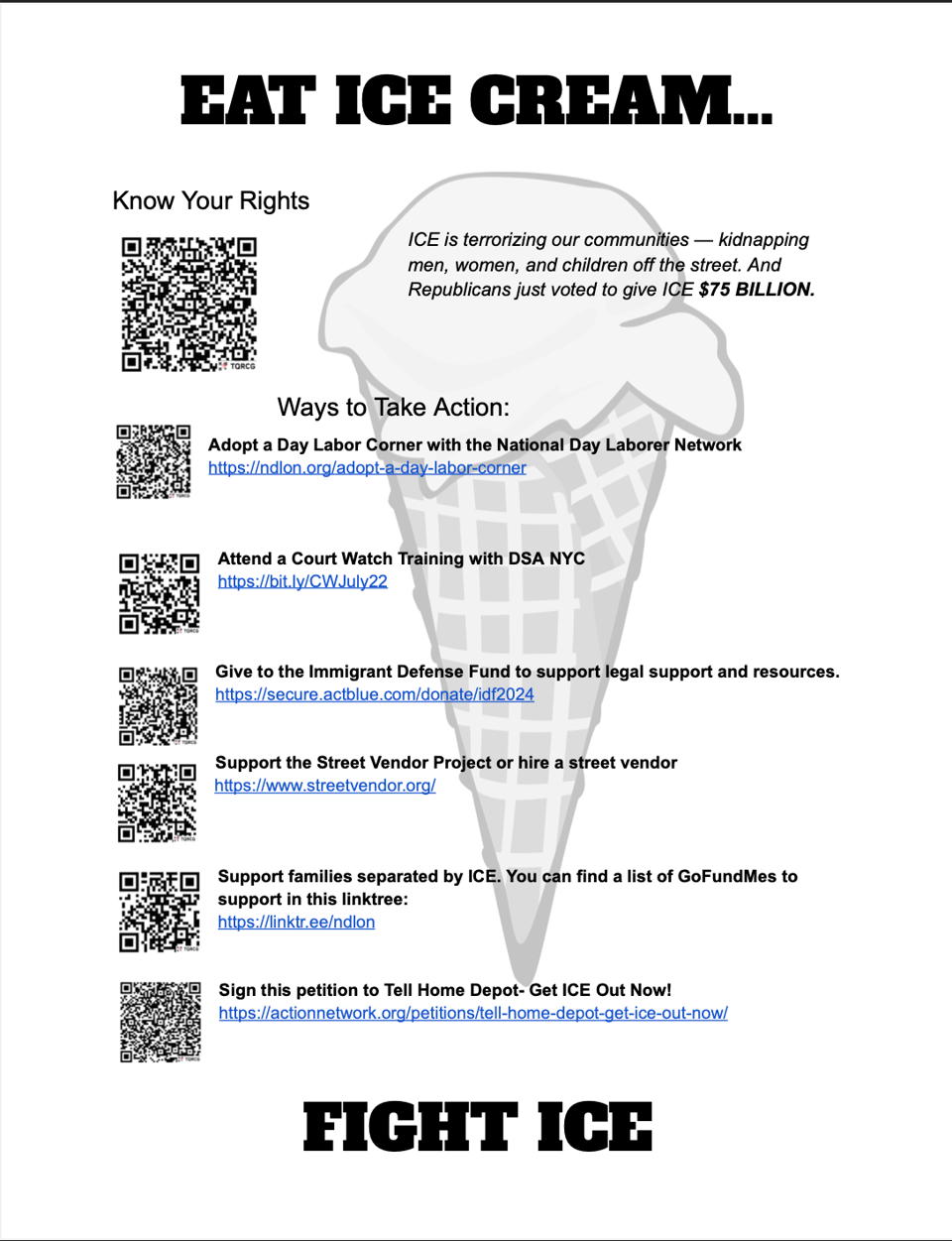The Revolution Will Not Happen in the Group Chat
To fight fascism we'll have to leave the comfort and convenience of the group chat behind.
I often forget that group chats are not an effective platform for political organizing. But a few recent experiences reminded me yet again of their limitations.
The first was in the group chat of a neighborhood mutual aid organization. In the chat, someone shared about an upcoming event, and asked for people to show up to counter an anticipated “Zio” presence. Zio is a word that has become more commonly used by some on the left as shorthand for Zionist and when I see it, it gets under my skin because it was originally popularized by David Duke.
I understood the challenges of trying to call in a stranger via group chat, but I did my best. I wrote, “Hi - I don’t intend this to be a distraction - I appreciate you sharing this event and opportunity to support. Just asking that we use Zionist instead of Zio since the latter comes from white nationalists/nazis. It’s a small thing but would mean a lot to me as an antizionist Jew thanks.”
Overall, the reaction was mixed. Some people were curious. Some were supportive. And a couple of very vocal chat members were aggressively argumentative. I tried to defuse the situation and suggested we try to talk about it outside the chat one on one or in person as a group, but this was mostly ignored and my original request was dismissed. Even though the group at large responded respectfully, I felt dismayed by the outsized hostility from two or three people. It reminded me once again that text communication leaves out so much important information as far as tone and ability to connect meaningfully, especially when two people don’t know each other.

Later though, I had a different frustrating experience when texting groups of friends. I reached out to two separate group chats about an action organized by Parents Solidarity Fast for Gaza. I shared some information about the action, expressed my interest in participating, and invited my friends to participate. In both cases my texts were completely ignored. They didn’t even receive an emoji. I’m not sure exactly why these texts got the non-response they did, but regardless, it shows how group chats fall short as a tool for organizing, which is to say they fall short as a means for building connection.
I’m not sure exactly why this is, but I suspect it’s because texts are becoming yet another form of communication that people ignore. We don’t want to ignore texts from people we care about, but we’re getting overloaded with requests for our attention. We get spam texts from scammers, Democratic fundraisers, and clothing brands we shopped at one time two years ago. Another demand, whether it’s for time, energy, accountability, or connection, can easily get ignored through no malicious intent.
When attempts for connection fall short like this, I remind myself that one on one outreach, ideally in person, remains the most powerful and effective strategy at my disposal.
In July, I was lucky to experience a positive example of this. People who know me know that I love ice cream. I was excited to learn on Instagram about National Ice Cream Day and then a random and strange idea popped into my head. I wanted to use this fun celebration of ice cream as an organizing opportunity. So I made up a very basic flyer with links to different ways people could resist ICE’s kidnappings in their community.
I shared the idea with friends and my JFREJ group chat and a friend volunteered to join me (A rare win for the group chat!). I’m so grateful she did because I felt so much more confident and comfortable standing outside Ample Hills with her company. Together we passed out 100 flyers to people walking in and out of the ice cream shop as well as people just passing by. We experimented with different ways to get people’s attention (“Do you love ice cream and hate fascism?”) and encouraged each other when occasionally someone was rude or dismissive. But most people were not rude or dismissive! Even if they didn’t take a flyer they were polite and many, many people were excited and grateful to have information about strategies to fight ICE.

The afternoon I spent with my friend passing out flyers affirmed a very obvious, but important lesson. We need each other to be strong. Fascism thrives by making us feel isolated and afraid. And if I’m being honest, I don’t feel brave enough to fight back by myself. I think a lot of people share that fear. Which is why taking action together is so important. And to do that, I’m realizing it’s very likely I’ll have to reach out to people individually and/or in person.
There are lots of other lessons I am taking away from these experiences about the values of experimentation, joy, and not taking things too personally. But most of all I want to remember that there’s no substitute for relationships.
Group chats can help us stay informed, but they don’t build the kind of connection we need to act courageously together. That takes one-on-one conversations and real relationships. Which is why I’m going to make an effort to reach out individually — maybe even to you — about joining me for actions like the Solidarity Fast for Gaza. Maybe if you join me, I might even treat you to some ice cream.
Other Recent Writing
Other Recommendations for Reading, Listening and Watching
Simone Zimmerman, Jewish Currents, “Rhetoric Without Reckoning”